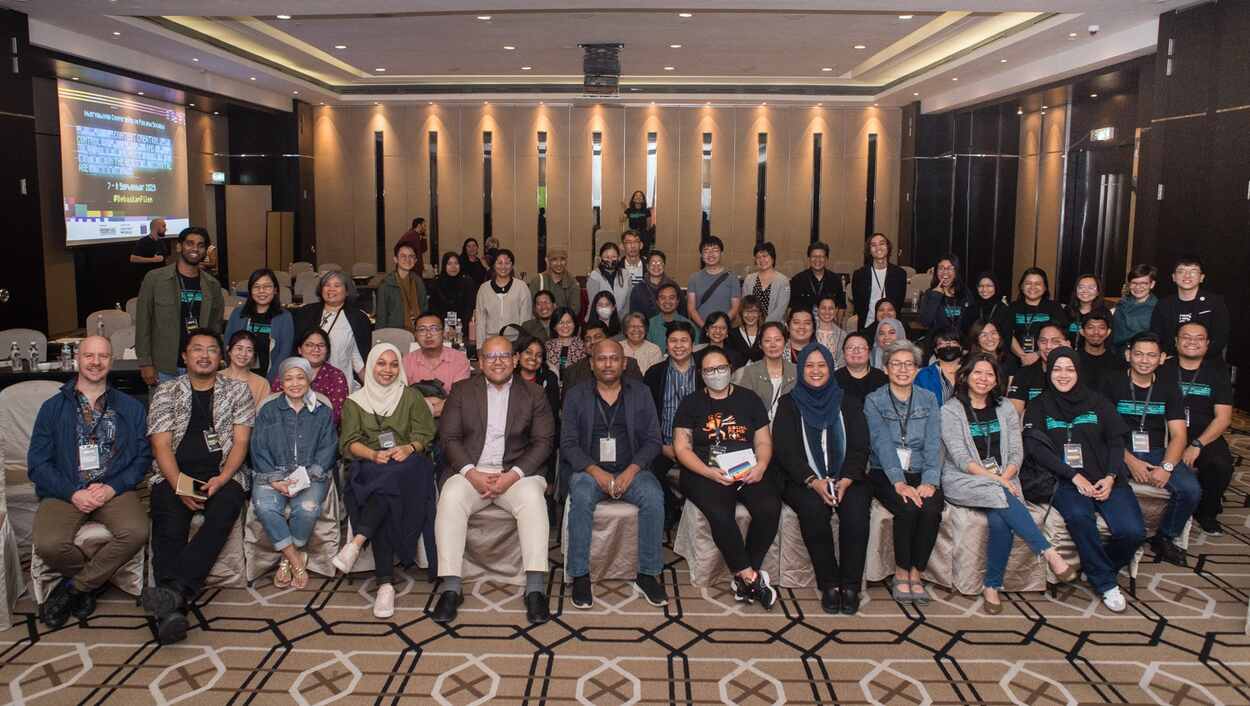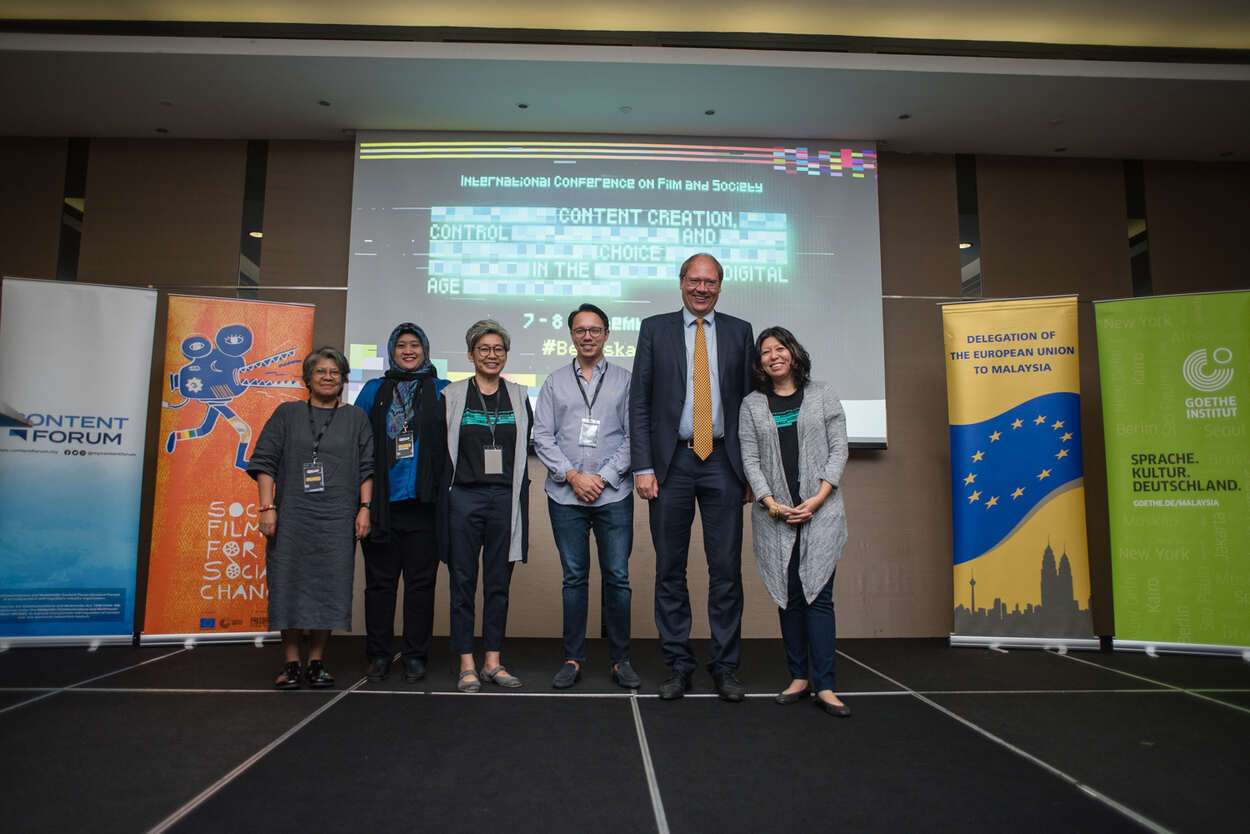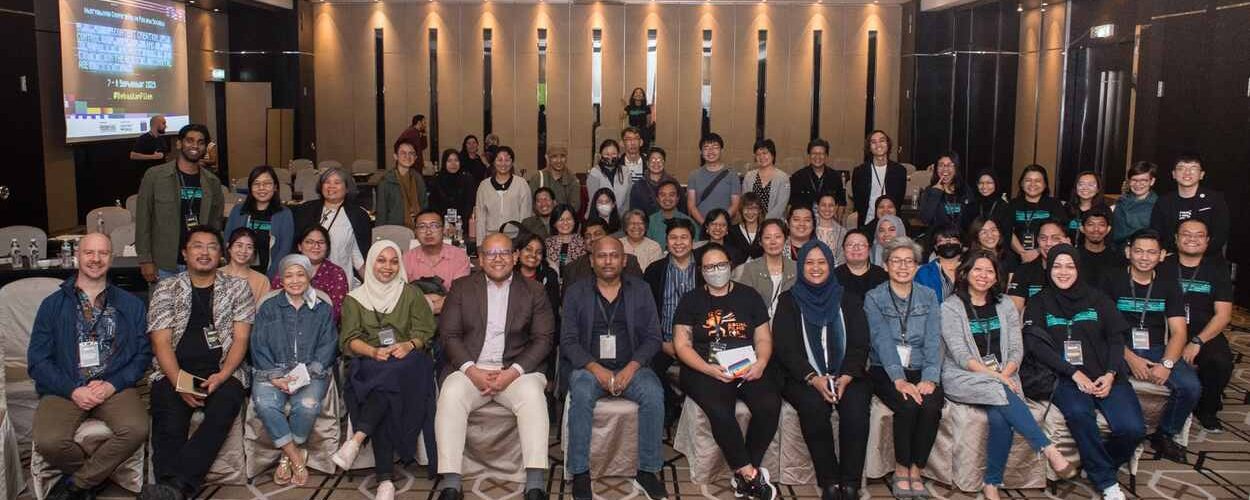The film industry is on the cusp of a transformative shift as prominent filmmakers and scholars unite to advocate for a change in the approach to film regulation. At the Inaugural Film & Society Conference hosted by Freedom Film Network (FFN) and the Content Forum on September 7-8, 2023, a resounding call for prioritizing self-regulation and classification over censorship echoed through the corridors of discourse.
Under the theme, “Content Creation, Control, and Choice in the Digital Age,” the two-day event convened an impressive lineup of panellists from academia, the film industry, and policymaking. The distinguished participants, including Syafiq Yusof of Skop Productions Sdn Bhd, Dr. Thomas Barker from the Australian National University, and Eneng Faridah Iskandar of the MCMC, voiced their collective concerns about the stifling impact of traditional censorship on artistic freedom and creativity.

Prominent voices unite
Anna Har, Co-Founder of FFN, remarked, “This marks a pivotal moment for FFN. Our research into film regulations and their impact on the industry unveiled practices that demanded reevaluation to sustain a healthy ecosystem, particularly in this digital age. This conference serves as a compass for charting our path forward.”
The conference took a proactive stance by urging governments to prioritize a shift from censorship to classification and self-regulation in the film industry. Filmmaker Syafiq Yusof passionately expressed, “We must recognize that filmmakers are artists, and art thrives when it has the freedom to express itself. Censorship has often hindered the creative process, limiting our ability to tell meaningful stories.”

Balancing freedom and responsibility
Dr. Thomas Barker, Honorary Associate Professor at the Australian National University, added, “A dynamic industry like film needs the flexibility to explore new narratives and challenge conventions. Classification and self-regulation offer a balanced approach that respects both artistic freedom and societal norms.”
Eneng Faridah Iskandar, Head of Consumer & Industry Affairs Division at MCMC, echoed the sentiment, emphasizing the need for responsible self-regulation, stating, “As the landscape of content creation evolves, it is essential to find a middle ground where the industry can thrive while ensuring public interests are safeguarded.”

The urgent call for change
The call to action resonated with attendees, who recognized the urgency of changing existing approaches to film regulation. The shift towards self-regulation and classification not only allows for the preservation of artistic freedom but also empowers consumers to make informed choices about the content they consume.
The conference highlighted that in today’s digital age, relying solely on government bodies or state entities as moral guardians is impractical. Instead, it emphasized the critical need to equip citizens with the tools and skills for responsible content consumption in the vast and easily accessible digital content landscape.

Empowering creators, protecting the public
Mediha Mahmood, Executive Director of the Content Forum, summed up the conference’s mission, stating, “We are playing our part by actively advocating for industry self-regulation. It’s about empowering creators, protecting the interests of the public, and fostering a more equitable film industry.”
As the film industry navigates the digital age, the resounding message from the Inaugural Film & Society Conference is clear: revolutionize film regulation, prioritize self-regulation and classification, and allow creativity to flourish while safeguarding public interests. This pivotal moment may well redefine the future of the film industry.












Add comment